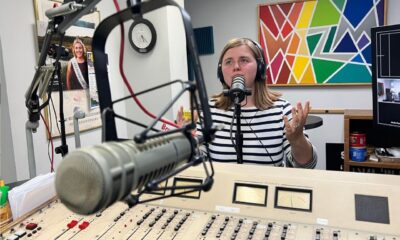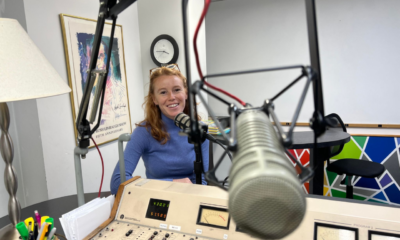Agriculture
Extension programs focus on encouraging women in agriculture
In an increasing trend, women are taking more active roles as producers in agriculture.
The 2017 census showed women were the principal operators of more than 29 percent of farms. Putting the focus on women, University Extension officials across the nation offer programs to specifically help female farmers or those working in other areas of agriculture get more involved in the industry.
Angie Rieck-Hinz is a field Agronomist in north-central Iowa for Iowa State University Extension and Outreach. She gave the example that each winter, the Iowa Women’s Agronomy in the Field Program offers a series of webinars targeted toward female producers.
“Women can join from their own home,” Rieck-Hinz said. “They can join through some of our county extension offices that have watch parties. It is a method to get women together to go through these topics they tell us they would like to have for winter programming.”
Rieck-Hinz said those who attend tend to feel more comfortable and find themselves in a setting where they are more apt to absorb the information being presented. Although they do not exclude men from attending, a strong female presence has been proven to help.
“There is some research that shows women like to have this kind of programming,” Rieck-Hinz said. “They are not always comfortable in situations where there might be a lot of men present to ask questions. Providing women’s programming as a standalone basis is designed so that women can meet their needs in an environment where they might be able to make some connections with other local farm women or female ag retailers or NRCS staff or whatever the case is.”
She noted about one-third of counties in Iowa offer these programs with a specific focus in women in agronomy, but there is also a statewide push with an entire women in agriculture program run through Iowa State University Extension and Outreach. Rieck-Hinz said they look into farm management.
“We have a lot more soil and water conservation technicians and district conservationists and engineers at NRCS that are female,” Rieck-Hinz said. “The opportunity to address some of these needs by this particular group is expanding all over not just Iowa, but in Wisconsin, Minnesota, and Illinois. There are a lot of states that are investing in doing more programming for women in ag.”
Because farming is a dangerous and stressful occupation, another topic women who are not the principal operators should consider is emergency-case scenarios.
“There are a lot of great opportunities for the women to sit down and say, ‘I need to learn about the cash flow on the farm,’” Rieck-Hinz said. “’What do I need to know if something happens to my spouse or if they become incapacitated at some point in time? How do I continue to manage that farm from a financial perspective or a business perspective if something happens?’ We also talk about transitioning to that next generation. That can be a really hard thing to do.”
Anyone interested in these programs can contact a local extension agent to get more information or reach out to an Iowa State field specialist such as a livestock or farm management specialist. Additionally, there is an Iowa Women’s Agronomy in the Field Facebook group that shares information.







